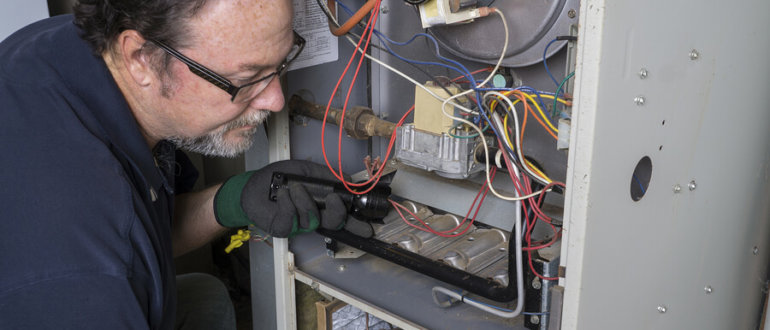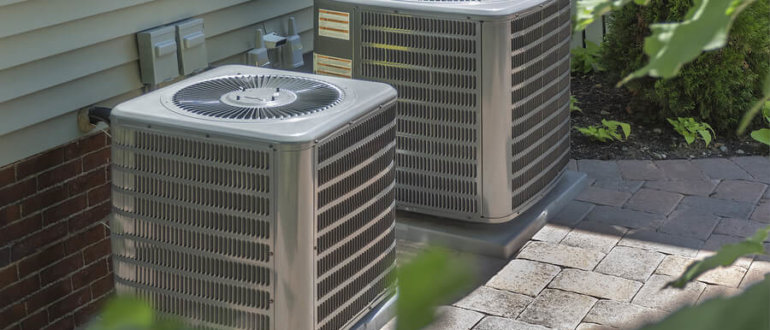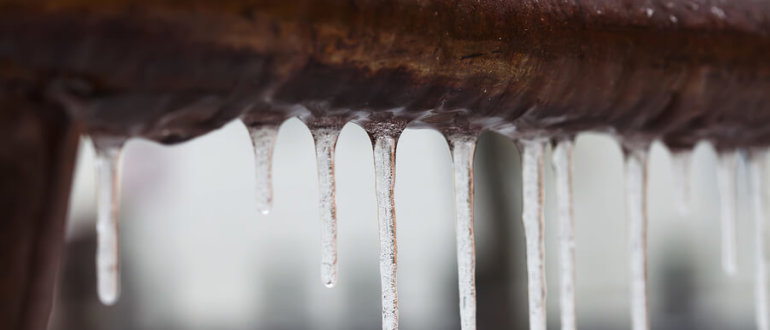Fall is The Perfect Time For Furnace Maintenance
We know you’d rather not think about it, but winter is right around the corner. And while the weather is still warm, it is the perfect time to maintain your heating system so you aren’t potentially caught dealing with a malfunctioning furnace in the dead of winter.
One of the best ways to ensure that your heating system is working at its peak is to schedule an annual furnace check-up. Like any mechanical system from your car to your HVAC system, the wear and tear of daily usage can create potential problems and malfunctions. Just like you take your car in for preventive maintenance, you should consider the same for your heating and cooling systems.
Before You Call a Professional
Before you call your Philadelphia HVAC contractor for an official tune-up, there are some things you can do as a homeowner. DIY troubleshooting can be half the battle.
Check Your Air Filter
In order to ensure that your furnace is efficiently circulating, the easiest fix is your air filter. Such a small thing, but one of the most important aspects of your heating system is that small filter. A clogged air filter will result in restricted air flow, decreased efficiency, and higher energy bills. Take your filter out and hold it to the light. If you don’t see any light coming through the filter, it needs immediate replacement.
Check Your Thermostat
Another easy homeowner troubleshooting area is the thermostat. Set it to “heat” and make sure the temperature setting is above the current temperature inside your home. Feel the air to make sure that it eventually begins to come out warm. If your thermostat is not operating, it may be time for a simple battery change.
Open Your Household Vents
No, it doesn’t save money by closing off vents in rooms that are seldom used. That is a fallacy. In fact, closing vents can result in higher energy costs and can potentially cause damage by decreasing needed circulation. Closing off vents can increase pressure in the furnace leading to inefficiency and breakdowns.
What a Furnace Maintenance Visit Includes
When you are ready for your furnace tune-up, your Philadelphia HVAC repair technician will conduct a full inspection of your system. This will include:
- A visual inspection to check all working parts of the system
- Lubrication to ensure that friction is reduced between operating parts.
- Pilot light and gas pressure evaluation in order to make sure they are working to specification
- Filter replacement
- Written assessment. A quality professional will always offer an analysis and recommendations in order for you to understand the current condition of your systems.
Your furnace is a big investment. Regular maintenance ensures that it is working correctly and efficiently and will prolong its lifespan. Before winter rolls around, call the Philadelphia HVAC repair professionals at Affordable Fixes LLC to ensure that your furnace is ready for that cold weather.
Time to Check That Furnace Before You Are Left Out in the Cold
Sad but true, summer is over. The kids are back in school (a good thing) but that warm weather is on its way out (a not so good thing). Summer seems to get shorter each year. Before you know it, we will be bundling up and heading out for football games, roasting a turkey, getting ready for the holidays…and running that furnace.
Now may be a great time to brush up on furnace trivia courtesy of your local Philadelphia HVAC professional. No, furnace trivia is not the newest board game but things to be watchful for to suggest that your furnace is about to break down. We tend to forget about our dear furnaces throughout the summer but it’s best to brush up early.
Your heating system will often offer warning signs before a complete and total breakdown, fortunately for us. There are some common symptoms that we can watch for in order to head off inconvenient breakdowns in the middle of cold weather season.
Banging Noise
Your first indication of a furnace issue can show itself when you first turn the system on. If you hear a loud banging when your furnace starts, it could indicate a few things. One may be that the burner may be malfunctioning. Because gas builds up until the burner, ignites it, which can result in a loud bang. Think of it as a small explosion. Do you want a small explosion happening in your home? We didn’t think so.
Metal air ducts can also expand and contract as cold or warm air passes through them. This can also result in booming noises. The extenuating culprit may be obstructions at the vents, air filter, or simply ducts that aren’t adequate for your system.
More Noises
Are you hearing a high-pitched whining noise? This could be indicative of a blower belt problem or shaft bearing needed lubrication. A metallic scraping noise? A malfunctioning blower wheel or broken motor mount. Either sound should mean a quick call to your Philadelphia furnace repair technician.
Cold Air When There Should be Warm Air
There may be several reasons that your furnace is generating cold air. The easiest thing to consider is your thermostat. Your thermostat should be set to “auto”, not “on”. This will ensure that only heated air is being generated when necessary instead of continuous, and possibly cold air being generated instead. Another issue may be with a clogged air filter. Your air filter may be restricting airflow and can potentially overheat your system. The system will stop heating air as a precaution.
Get a Head Start
If you are smart, you will get a head start on checking on your heating system, so you will be warm this winter while others are calling their Philadelphia HVAC repair companies for repairs. Call Affordable Fixes LLC to get a head start on your heating system before cold weather moves in.
How to Prepare Your Air Conditioning For Winter
Although it’s the end of summer, there are some last minute considerations before you tuck your cooling systems away for the year. Home maintenance never ends. The same goes for your heating and cooling systems. In order for you to ensure that your air conditioning system will work without problems come next summer, it’s important to prepare it for a long winter slumber.
The outdoor component of your AC system is subject to winter weather in the way of snow, ice, and oxidation. It is also subject to yard debris. A quick winterization can prevent damage and rust and ensure that your air conditioning system is kept from harmful weather and will operate smoothly and efficiently next summer.
Turn Off the Power
Your exterior power circuit for your AC system is located on the side of your home. Lift the cover and flip the switch to the “off” position, then close the lid. This is important to ensure that there is no risk of electrocution while you are maintaining your unit. It also ensures that your air conditioner doesn’t accidentally engage during an unseasonably warm day, possibly resulting in a nighttime freeze and subsequent damage.
Clean Your Unit
Using a broom, sweep away any leaves or yard debris that may be on or surrounding your unit. Use a hose to wash away any dirt or other debris. Allow the unit to dry. Making sure your unit is clean ensures that it won’t get clogged during the winter resulting in a breakdown when you turn it back on next summer. Inspect it for any cracks or rust that may become potential problems. Finding problems now cuts the risk for a breakdown in the middle of the summer. If you see any problems, call your Philadelphia AC repair technician.
Cover Your Unit
There are covers specifically made for your outdoor AC unit. You may also use any type of waterproof or vinyl covering in order to protect it during the upcoming winter. Make sure the covering is secured so it doesn’t blow away in the wind.
Provide Extra Insulation
The exposed pipes and wiring around your unit should be insulated, particularly those that go into the home. This insulation keeps pipes, fluid, and wires from freezing and cracking.
Check Periodically
Throughout the winter months, you will want to check your AC unit weekly in order to clear away any accumulated debris and to remove any water or ice that may have accumulated on top of the unit. This accumulated weight can be potentially damaging.
This seasonal maintenance will extend the life of your AC system, fend off potential problems, and enable you to check for any issues before the next summer season begins. If you do find any irregularities, make sure to call the Philadelphia air conditioning repair professionals at Affordable Fixes LLC to address any issues before they turn into costly malfunctions.
Frozen Pipes Are No Joke
It’s difficult to think about winter just yet as the last remains of summer are so close, but the reality is that winter is inevitable. And with it comes some inherent problems when it comes to our household plumbing.
Unless you have experienced it or know someone who has, you may not appreciate that frozen pipes are not only inconvenient but can be extremely damaging to your home and your belongings. One of the most important things to consider when doing regular home maintenance is considering how your plumbing will stand up to winter weather.
Areas That Are More Vulnerable
In many cases, pipes are vulnerable to freezing when the homeowner is away and temperatures inside dip to below freezing. But this is not always the case. Pipes can freeze in certain areas of the home even if you are home and living comfortably inside. When it comes to frozen pipes, there are areas of the home that are most vulnerable.
Exterior walls — any pipes located along the exterior wall of a home will experience lower temperatures. If these pipes are not adequately insulated, they will have no protection against those winter temperatures and can be vulnerable to freezing.
Attics and basements — pipes that are located in attics and basements may be more vulnerable to freezing. Out of sight, out of mind, they say. But these areas of your home may be more susceptible to cold temperatures and require that added insulation.
Early Signs
One of the first signs that your pipes may be frozen is the lack of water coming through them. If water is not coming through your household faucets, it’s a sure sign that there may be a frozen obstruction. If you see frost on any of your pipes or you are experiencing strange smells coming from your drains or faucets, this can be another indication.
What to Do
If you suspect that a pipe may be frozen, it’s important to act immediately. If you know the location that is frozen, you can work to quickly thaw the area or call your Philadelphia plumber for an emergency call.
If you choose to thaw the pipe yourself, you should open both hot and cold handles of the faucet that the pipe feeds into. If the pipe is easily accessible, you can apply heat until you see that water is moving through the faucet. This can be done with a hair dryer, a heat lamp or space heater, hot towels, or electrical heating tape.
If the pipe isn’t accessible, but you know basically where the frozen area is located, you can place an infrared lamp at the location and turn up the heat in the home.
Prevention Techniques
To ensure that you aren’t a victim of a frozen pipe this winter, here are some recommendations from the American Red Cross:
Keep garage doors closed if there are water supply pipes inside.
Open cabinet doors to permit warm air closer circulation to pipes in the kitchen and bathrooms.
If the weather is excessively cold, let water slowly drip from any faucet that may be fed by outside pipes.
Keep the thermostat consistent both day and night. Lower nighttime temperatures can equal costly repairs.
If you leave your home for an extended period, keep the heat on in your home with the thermostat set no lower than 55°F.
Call a Professional
In the case where you have not been able to head off a plumbing emergency due to frozen pipes, call the emergency Philadelphia plumbers at Affordable Fixes LLC.




